

Looking east from Jim’s Field at Perch Hill over the woods, fields and farms of the Sussex Weald.

Adam Nicolson in about 1990, just as his life was falling apart.

Sarah Raven at the same moment.

The transformation of the garden begins, getting much worse before it could ever get better.

Friends help to lay out the beginnings of Sarah’s cutting garden, with woven hazel windbreaks and a semblance of order.

Ben and Rosie Nicolson in the newly laid out garden with brick paths and far-too-expensive new pots.

Chestnut stakes, with turned onion tops turned, painted to look like gondola posts, with blue plant labels marking out the rows: Sarah starts to evolve the Perch Hill style.

Donald, by far the longest living of all our ducks, sorts out the slugs in an early version of the springtime cutting garden.

Sarah with Will Clark and a slightly disgruntled Rosie.
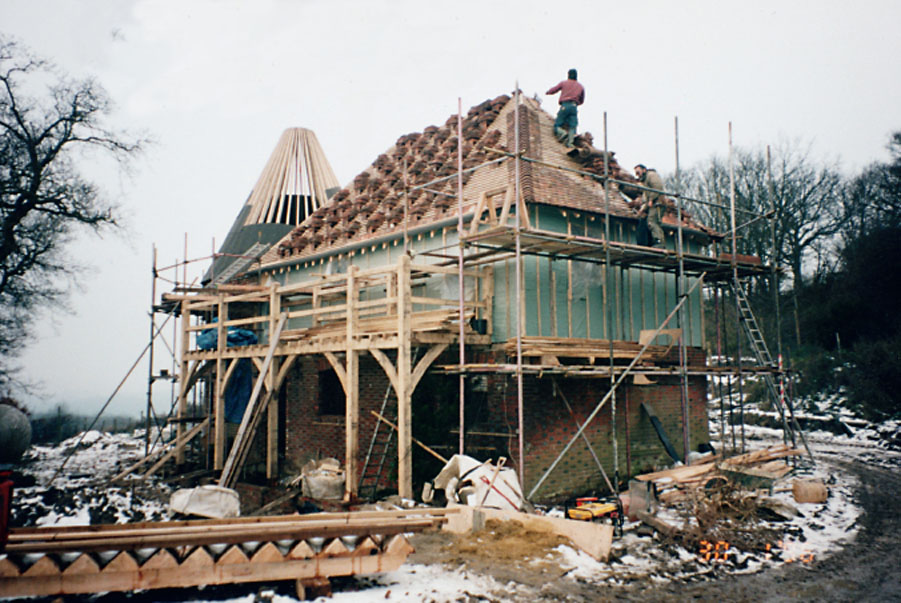
The new oast house emerges from a sea of mud, snow and rubbish.

Nipper Keeley, Sussex man par excellence, wood merchant, dog-breeder, furniture maker, wit and raconteur, gives Sarah a bunch of his supremely long-stemmed sweet peas.

Summer supper with Rosie, Adam, Molly, Sarah and, half-visible, Colonel Custard the dog.

Ken Weekes, born at Perch Hill, dairy farmer at Perch Hill, by the 1990s tenant of Perch Hill cottage, general guide and advisor on every element of Perch Hill life.
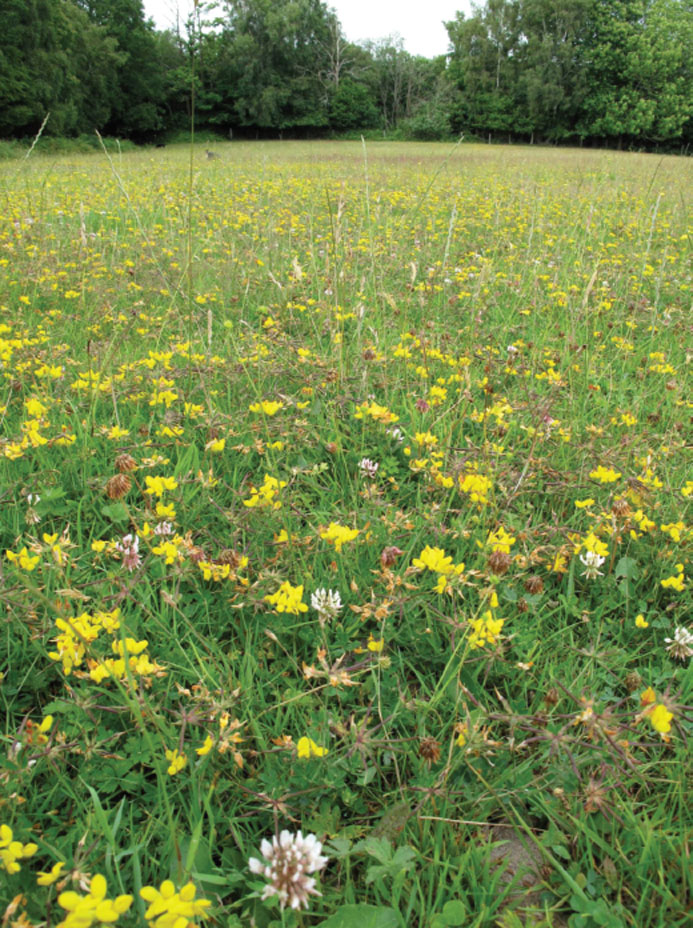
Years of topping the thistles and using no sprays on the pastures have produced a rich, flowery and diverse sward full of vetches and clovers, as here in the bottom of Great Flemings.

Bluebells and orchids in the wood.
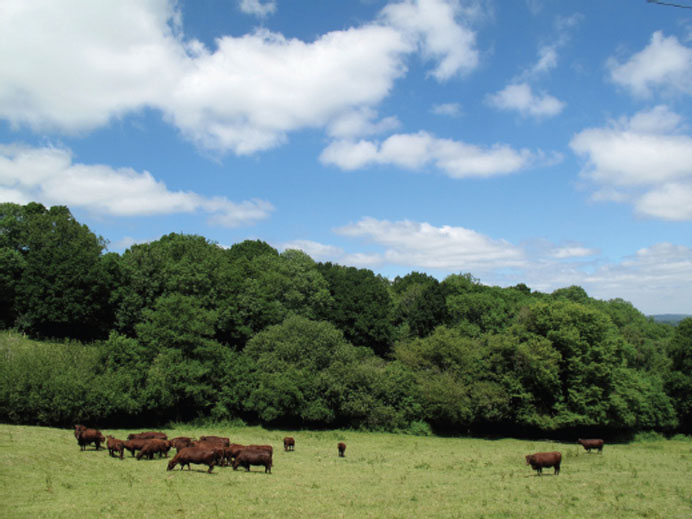
The Perch Hill herd of Sussex cattle in Target Field: as soon as they arrived it felt as if the farm was complete.
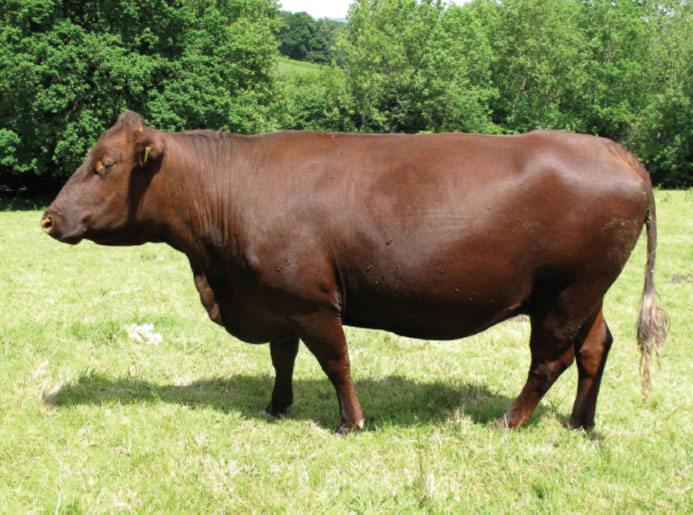
Glossy, full and fat on Perch Hill grass, the cattle came to seem what Perch Hill was for.
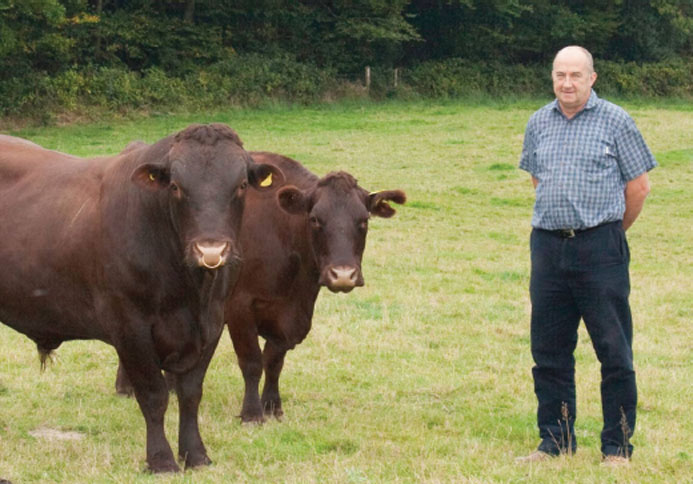
Simon Bishop, with Norman the Sussex bull and one of his cows, steered the farm at Perch Hill into a wonderful, new and healthy state which it would never have reached without him. He was tragically killed in a road accident in November 2009.
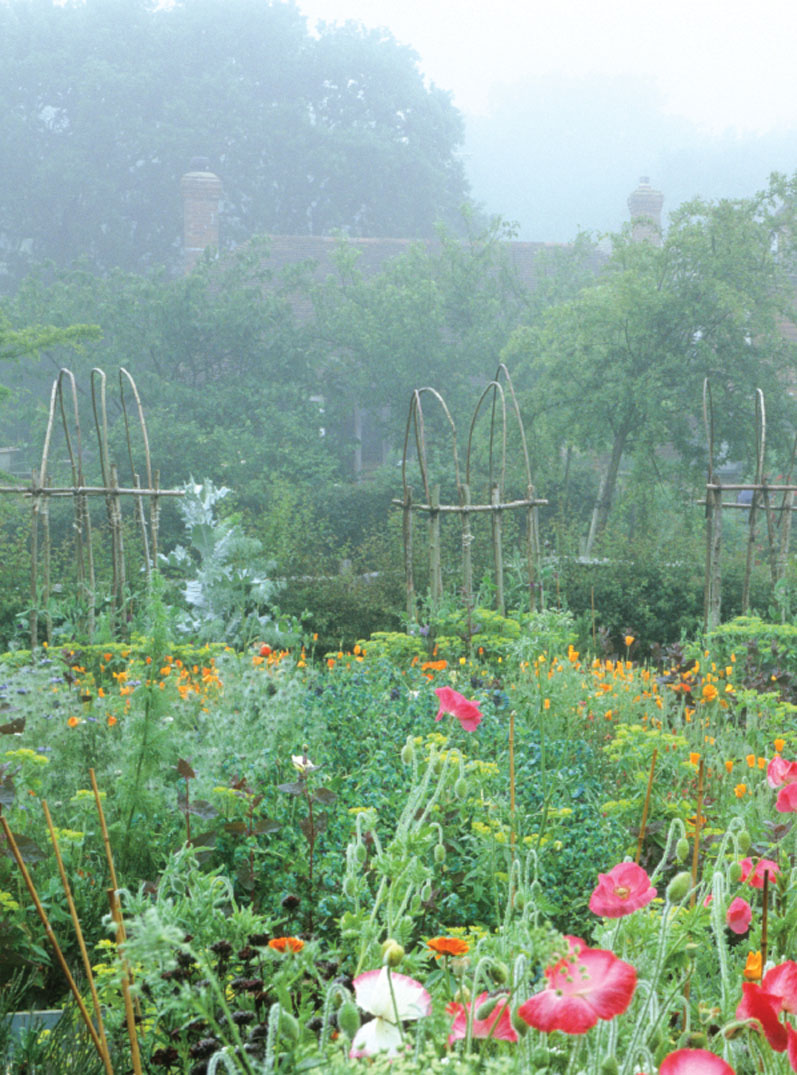
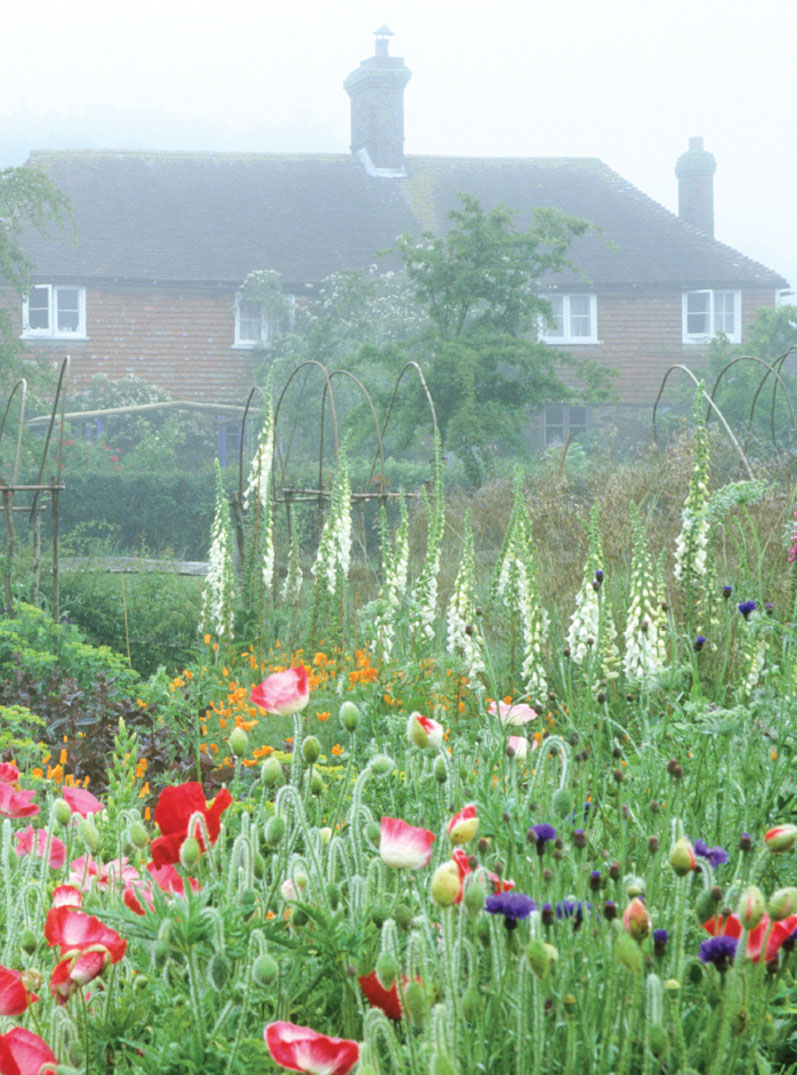
California and Iceland poppies, cornflowers and foxgloves fill a misty summer morning in the cutting garden, as the house now sits in its sea of flowers.
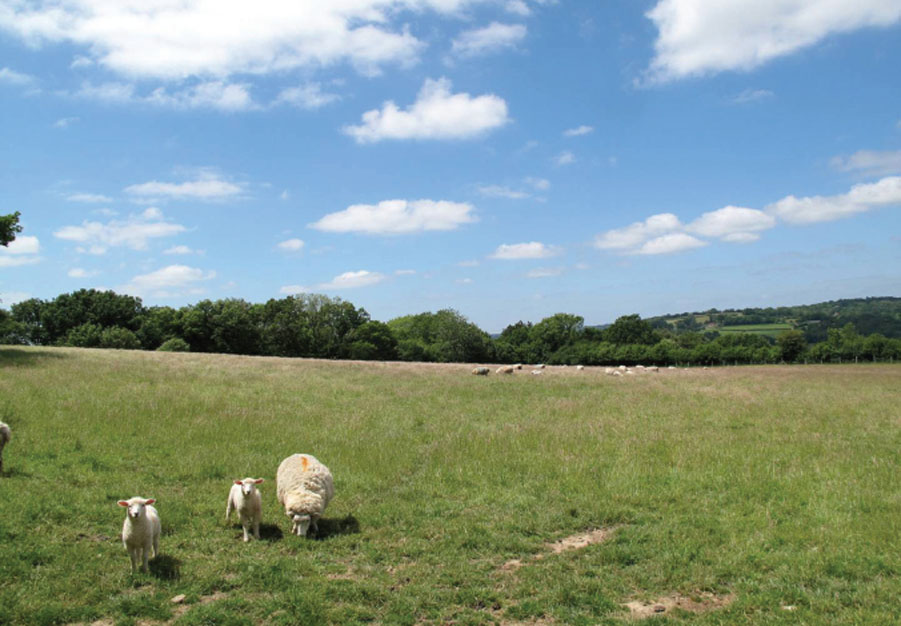
Beech Meadow, which in the 50s and 60s was used as the farm’s only arable field, now alternates between pasture for sheep and cattle and a hay meadow.
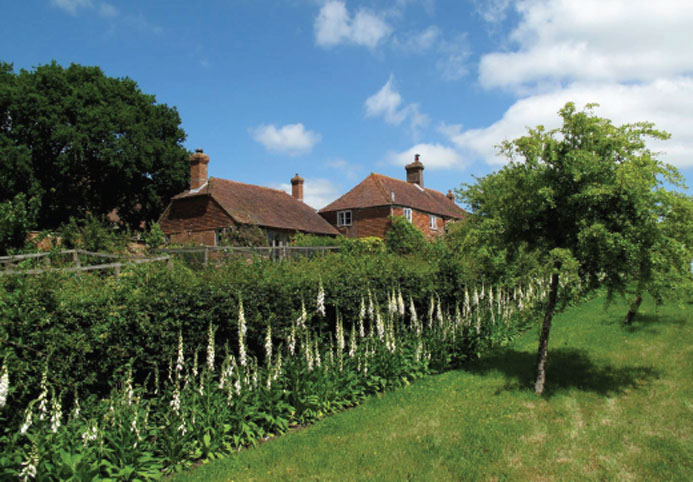
White foxgloves line the hedge between the fruit garden and the entrance track. A standard hawthorn planted in 1997 leans away from the prevailing southwesterlies.
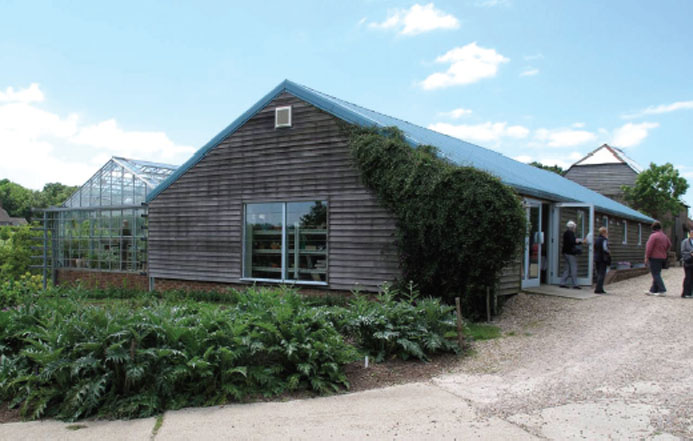
The converted cowshed now has a green house attached and is surrounded by a mixture of artichokes and herbs. This has become Sarah’s garden and cookery school.
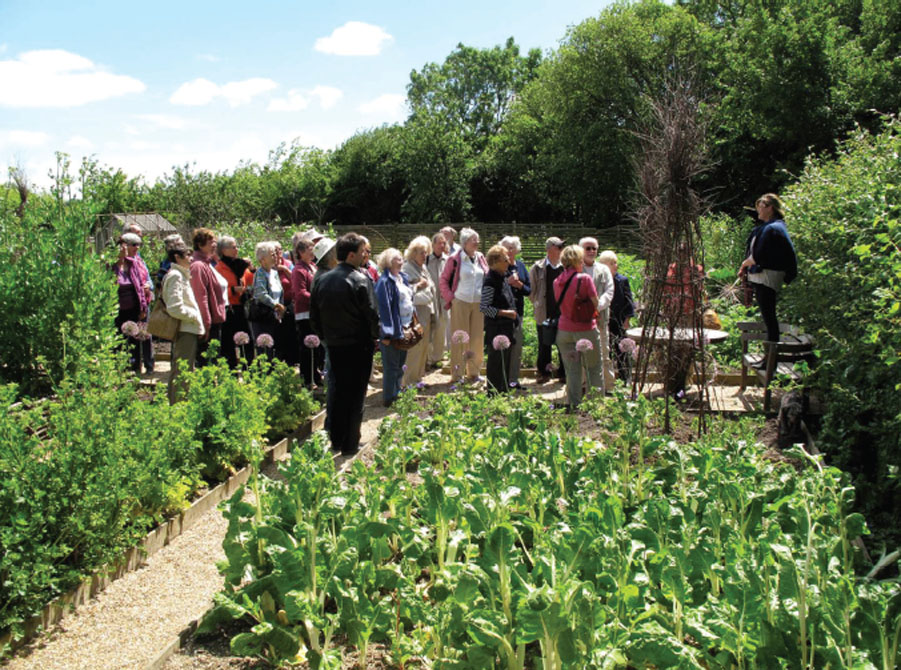
Sarah talks to a group of visitors in the new vegetable garden on the virtues of growing your own.
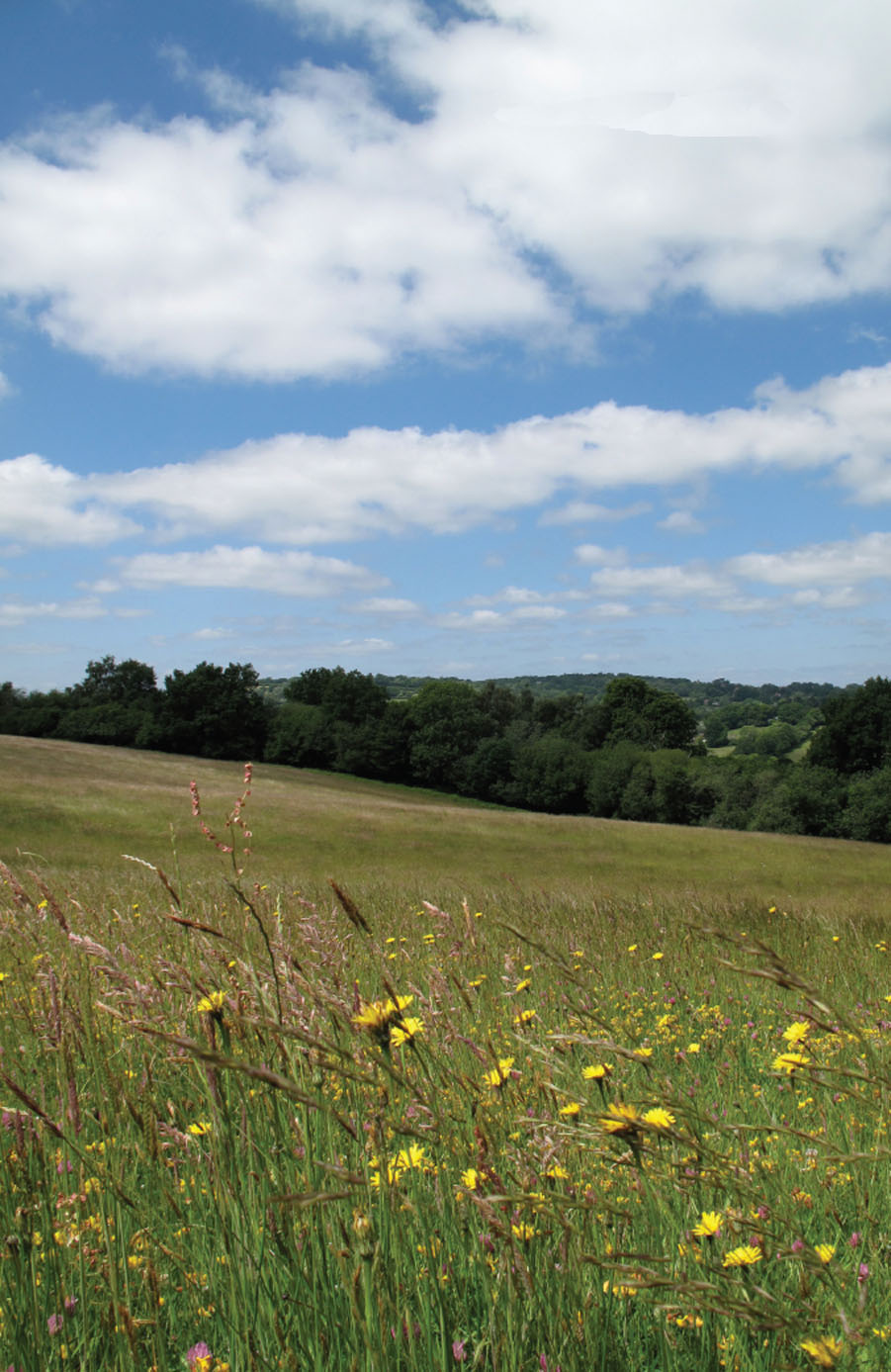
The smell of summer grass.